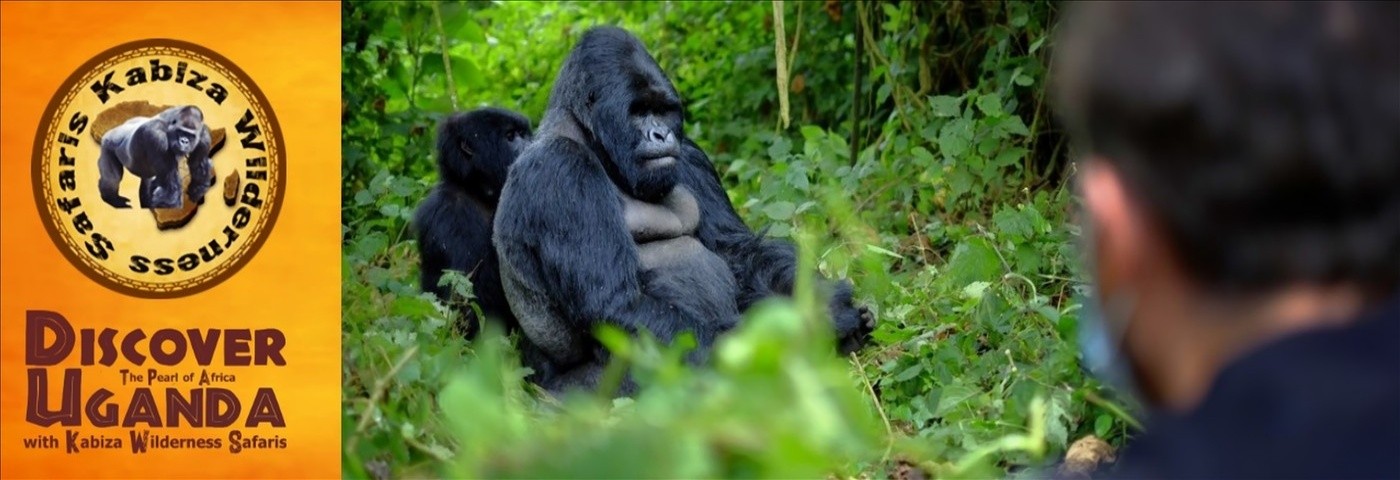Chimpanzee Trekking Rules – Regulations to Abide by in Uganda
COVID-19 Rules – Etiquette – Regulations while Trekking the Chimpanzees of Uganda
![]()
When it comes to chimpanzee trekking, rules and regulations are in place to ensure the safety, security, and health of both humans and the chimpanzee troops. It’s crucial to understand that chimpanzees can be susceptible to human illnesses, including respiratory diseases like COVID-19, as their DNA is 98.9% similar to ours.
Chimpanzees are vulnerable to the same diseases that affect humans. Cases of flu and colds are common among chimpanzees, and certain respiratory diseases can even be fatal to them. It’s essential to minimize the risk of transmitting any illnesses to these incredible creatures.
Chimpanzee tourism plays a significant role in conservation efforts, particularly in habitat preservation. Although this isn’t directly related to the temporary shutdown caused by the coronavirus pandemic, it highlights the importance of tourism in supporting conservation initiatives.
As chimpanzee trekking reopens, a COVID-19 Standard Operating Procedure has been implemented to safeguard both the playful chimpanzees and humans. These protocols are designed to minimize the risk of disease transmission and will likely remain in effect even after the pandemic has subsided. The primary objective is to protect these endangered chimpanzees, and adhering to the protocols is crucial.
By following the COVID-19 rules and regulations for chimpanzee trekking, we ensure the well-being of both humans and these remarkable creatures. It’s a responsible approach that ultimately contributes to the preservation of chimpanzee populations and their natural habitats.
Chimpanzee Trekking- Rules – Guide Lines – The Do’s and Don’ts for Chimpanzee Trekkers
The Rules have been updated to meet the COVID-19 Safety and Protection Standards. The Same Chimpanzee Trekking- Rules – Guide Lines apply to the half of full-day Chimpanzee Habituation Experience in Kibale Forest. The Minimum Age for Chimpanzee Trackers remains at fifteen years. Chimpanzee Tracking in Kalinzu Forest, the minimum age is twelve.
Chimpanzee Trekking Standard Operating Procedures
What you need to do before the Chimpanzee Trek:
- Proper Chimpanzee Trekking Wear and Gear: Long Trousers, a long-sleeved Shirt, and Waterproof Hiking Boots
 are well-worn. A hat, a wide-brimmed hat, is the best. Thick socks that you can tuck your socks into for protection. You will need extra face masks. We will provide you with a Walking Stick for the Trek.
are well-worn. A hat, a wide-brimmed hat, is the best. Thick socks that you can tuck your socks into for protection. You will need extra face masks. We will provide you with a Walking Stick for the Trek.
- Have a comfortable waterproof Daypack: We suggest that you have a light daypack to put the lunch that you obtain from the lodge. We supply two liters of water, Photographic Equipment, and insect repellent, which repels the mosquitoes (keep in a Ziplock bag). Add a small sanitizer bottle and keep it light since you will carry it in and out
- Cancel the Trek if you are ill: If you are sick with flu, cough, cold, or stomach ailment, be a Hero, and for the sake of the primates, do not trek. We have had two clients that have done so. Surveys have shown that most continue the Trek even if ill. We suggest that, for the sake of the Chimpanzees, you cancel the day.
Chimpanzee Trekking Briefing and Orientation:
Your Chimpanzee Trek begins with a Briefing and Orientation at the trailhead, where your Trek begins and ends. Besides wearing the proper clothing, masks are required. Handwashing Stations are there, and you are required to wash your hands or sanitize them upon arrival. Please follow the distancing rule of two meters or six feet.
Besides wearing the proper clothing, masks are required. Handwashing Stations are there, and you are required to wash your hands or sanitize them upon arrival. Please follow the distancing rule of two meters or six feet.
- The maximum number of Trekkers is 12: Only six are allowed, and the minimum age is fifteen.
- Temperature Screening: The mandatory temperature screening using non-contact infra-red thermometers at the critical tourism
- The Trekking Briefing: The Ranger that will lead the Trek is the one that will brief before heading out. You will be instructed to conduct yourself on and Trek during the Chimpanzee Encounter.
- If you are ill: Tourists and staff, during the briefing, are observed to be sick and shall not be allowed to track the Chimpanzee. These include anyone with signs of flu and those who report having diarrhea, stomach upsets, and malaria.
- Face Masks must be worn: Tourists and Rangers must wear fresh masks on the Trek. Two shows are required for the tour.
- Before heading out on the Trail: Wash or sanitize your hands again.
During the Trek in and out:
- Follow the Rangers’ instructions: The Rangers know what is best in the wild. They also want you to
 have a memorable experience. Follow the leading along tracking trails and stick to the group for your safety, but even so that you can listen to him explain the attractions seen along the way to the Chimpanzees.
have a memorable experience. Follow the leading along tracking trails and stick to the group for your safety, but even so that you can listen to him explain the attractions seen along the way to the Chimpanzees.
- Keep your voice low: You are requested to keep your voice at a low volume as you head to track the Chimpanzees and even be quieter when you finally meet them. It is so that you do not disrupt their peace and allow you to enjoy other wildlife species along the trail, especially the birds, golden monkeys, and butterflies.
- Keep a two-meter distance from others on the Trail: This is an enforced rule. Please have a span of two meters or six feet from others.
- Breaks on the Trail: Wearing a mask on a longer hike can be exhausting for some. Fresh, it will be taken in and out of the forest. Social distancing will be enforced during breaks on the trail.
- Do not pick flowers or plants: Leave everything as you find it. Do not pick flowers, plants, or roots. Only leave your footprints behind. The only to take with you are pictures.
- Final Instructions Before the Chimpanzee Encounter: Before you come near the Chimpanzees, you will be given some last-minute instructions. You will be asked to sanitize your hands once more.
- Medical Issues: If a tourist or accompanying team members experience a health-related problem, UWA staff
 shall apply the established evacuation and first aid guidelines to move the affected individual from the field.
shall apply the established evacuation and first aid guidelines to move the affected individual from the field.
- Medical Emergency: If a Trekker or accompanying team members experiences a health-related problem, UWA staff shall apply the established evacuation and first aid guidelines to move the affected individual from the field to the nearest hospital or clinic.
- DO NOT LITTER! Pack it in and pack it out: Like in any national park or protected area, you are advised to keep any form of garbage with you. If you have a backpack, please put all trash into it, and you can always empty it at a designated disposal point when you return to the briefing area.
- Using the Toilet on the trail: Should you need to use the Toilet, please speak to a ranger to advise you on how to do it ecologically.
When you are with the Chimpanzees
- Keep a ten-meter Distance: You must keep a distance of ten meters from where the mountain Chimpanzee family is. This distance is maintained to reduce the chance of transmission of diseases such as COVID-19. Infections can spread to the Chimpanzees or from Chimpanzees to humans.
- No Provoking of our closest cousins: No taunting the chimpanzees.
- No Eating or Smoking: Eating or smoking while in the presence of mountain Chimpanzees is prohibited.
- No Flash Photography: Flash photography is also prohibited while with Chimpanzees. It frightens them unnecessarily.
- Time with the Chimpanzees: You will be allowed 60 minutes with them to watch them foraging, playing, and going about their usual business of the day, after which you will be required to leave the family.
After the Chimpanzee Trek:
- Debriefing: Give your feedback to the rangers.
- Return to Lodge: Your Driver-Guide will meet you and return to the lodge.
Thank you for reading the COVID-19 Chimpanzee Trekking Rules – Regulations. Please look at our Chimpanzee Trekking Information Page for further Chimpanzee Trekking Information. You will be glad that you did.




